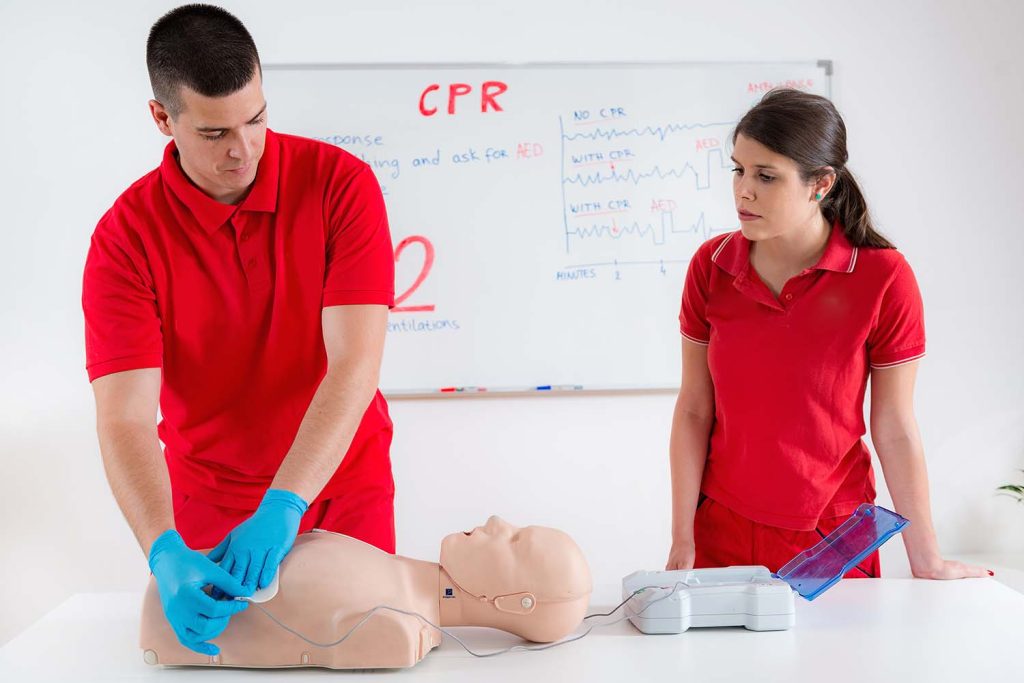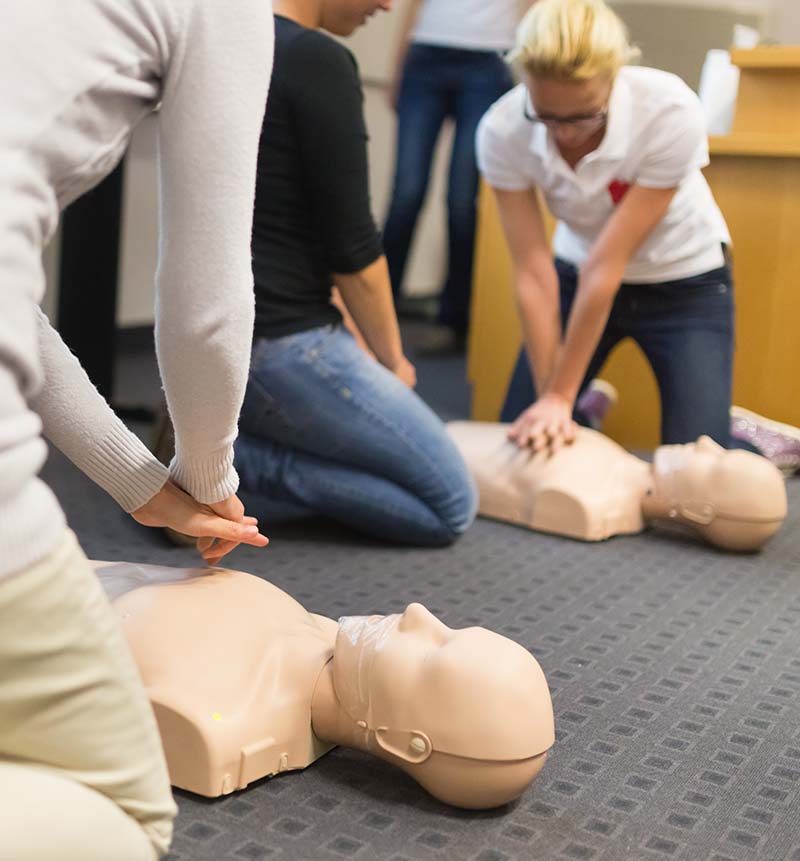CPR Instructor Training in North Carolina: American Heart Association and American Red Cross
Cardiopulmonary Resuscitation (CPR) is a crucial life-saving technique, and training others in this skill is a responsibility of immense importance. In North Carolina, becoming a certified CPR instructor is a rewarding pathway that can be pursued through two prominent organizations: the American Heart Association (AHA) and the American Red Cross. Both organizations offer comprehensive training programs designed to equip instructors with the knowledge, skills, and confidence needed to effectively teach CPR.
American Heart Association (AHA) CPR Instructor Training
The AHA’s CPR instructor training in North Carolina is structured to provide a thorough understanding of CPR techniques for adults, children, and infants. The process begins with the prospective instructor completing a basic CPR course to ensure they have a strong foundational knowledge. After this, they must attend the Instructor Essentials course, which covers the methodologies of teaching CPR, how to conduct training sessions, and how to evaluate students’ performance effectively.
One of the key components of the AHA instructor training is the emphasis on hands-on practice and the use of simulation-based learning. Trainees engage in practical exercises and scenarios that mimic real-life situations. This experiential approach not only enhances the instructors’ technical skills but also builds their confidence in delivering the training to future students.
American Red Cross CPR Instructor Training
Similarly, the American Red Cross offers a robust CPR instructor training program in North Carolina. The Red Cross program is known for its comprehensive curriculum that includes both online and in-person components. Trainees begin with an online orientation and a Fundamentals of Instructor Training (FIT) course, which provides the foundational knowledge necessary for effective teaching.
Following the online components, participants attend an in-person Instructor Course. This hands-on session focuses on mastering CPR techniques and learning how to teach these skills to others. The Red Cross also emphasizes the importance of communication and leadership skills in their training, ensuring that instructors are not only technically proficient but also capable of effectively engaging and motivating their students.
Certification and Continuing Education
Both the AHA and the American Red Cross require instructor candidates to pass a final written exam and a skills assessment to achieve certification. Once certified, instructors must maintain their certification through continuous education and periodic recertification courses. This ensures that instructors stay up-to-date with the latest CPR guidelines and techniques.
Benefits of Becoming a CPR Instructor
Becoming a CPR instructor in North Carolina offers numerous benefits. Instructors play a vital role in community health and safety by equipping individuals with the skills to save lives. Additionally, CPR instructors often find themselves in high demand, providing opportunities for part-time or full-time employment in various settings, including schools, workplaces, healthcare facilities, and community centers.
Impact on the Community
The impact of CPR instructors on their communities cannot be overstated. By training individuals in CPR, instructors contribute to the overall preparedness of the community to respond to cardiac emergencies. This increased preparedness can significantly improve survival rates for cardiac arrest victims, making a tangible difference in public health outcomes.
Support and Resources for Instructors
Both the AHA and the American Red Cross provide extensive support and resources for their instructors. This includes access to up-to-date training materials, instructional videos, and ongoing professional development opportunities. Instructors are also part of a larger network of peers, allowing for the exchange of best practices and continuous improvement.
Conclusion
In North Carolina, the paths to becoming a CPR instructor through the American Heart Association and the American Red Cross are well-defined and highly respected. Both organizations offer comprehensive training programs that equip individuals with the necessary skills and knowledge to teach CPR effectively. By becoming a CPR instructor, individuals not only advance their careers but also make a significant contribution to the health and safety of their communities. Whether through the AHA’s simulation-based learning or the Red Cross’s emphasis on communication skills, CPR instructors are empowered to make a difference in the lives of others.



